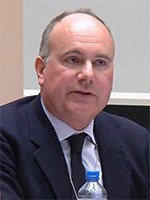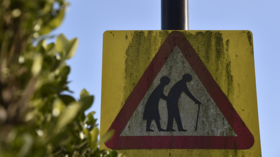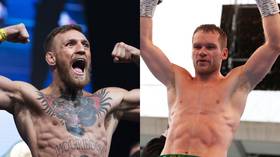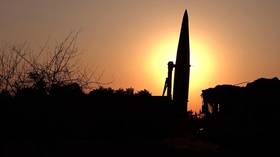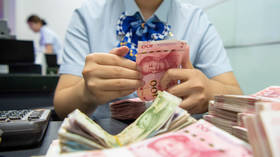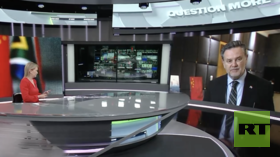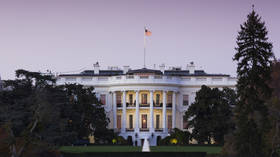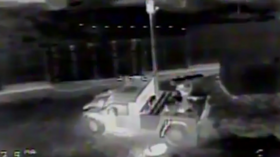Putin-Macron meeting heralds glorious summer after long winter of discontent
Five years is a long time in politics. In 2014, relations between Russia and the West went into a nosedive over Ukraine and Syria.
The “annexation” of Crimea, the shooting down of the Malaysian airliner, and the conflict in eastern Ukraine destroyed the partial re-establishment of normal relations which had started in 2008 with President Obama’s “re-set” and Nicolas Sarkozy’s rapprochement with Vladimir Putin. This included the Georgian crisis of that year, of which the French president’s decision in 2010 to sell two Mistral aircraft carriers to Russia was a potent symbol. The collapse in relations as a result of the Ukraine crisis led to EU and US sanctions against Russia, and to her expulsion from the G8 group of nations, as it then was, as well as to a war of words between East and West.
READ MORE: 5 yrs since MH17 crash: Malaysia questions Dutch-led team’s findings as inconclusive probe drags on
Vladimir Putin’s visit on Monday to the fort at Bregancon, the official summer residence of the French president, demonstrates that that period is now officially closed. On every level, the West has now abandoned its earlier hostility to Putin and Russia. First, the symbolism: President Putin spends a lot of time governing from his own summer residence in Sochi, and the invitation to the Mediterranean coast, where the atmosphere is more intimate and relaxed than in Paris, was undoubtedly a gesture to Putin’s predilection for warmer climes. The fact that the meeting took place just a few days before the Biarritz summit of what is now the G7 also shows that Paris intends to include Moscow in discussing world affairs at the highest level, even if it is unlikely that Russia will be formally readmitted to that structure.
Even the substance of the meeting showed how much things have changed. When Emmanuel Macron said that Russia was essential to solving various crises in the world – Iran, Ukraine, Syria, the INF Treaty – he was announcing a 180-degree change in French and Western policy.
For the last five years, not only the EU but also Washington and above all London have insisted that Russia is a problem, not a solution to a problem. The oft-repeated mantra about “a rules-based international order” was a way of accusing Russia of breaking those rules – on territorial integrity in Ukraine, on chemical weapons in Syria and Salisbury, and so on.
Also on rt.com How the world learned to stop worrying and ignore TrumpPresident Macron went further, even saying that the main problem in the world is no longer Russia but instead the United States. You have to read between the lines but here is the key quote:
“I would like to say that today the world is living through a historical moment; the multilateral approach is often criticized, and we should think about ways to rebuild this world and this order. This means we should look for new cooperation mechanisms that will be useful to all of us. In this case, in this context, our bilateral relations as well as relations between Russia and the European Union play a key and determinative role. I am thinking about everything that has happened over the past few decades, what has managed to drive us apart. I know that Russia is a European country in its heart of hearts. And we believe in a Europe that spreads from Lisbon to Vladivostok.”
The threat to multilateralism does not, according to Macron, come from Moscow. It comes instead from Washington, which has denounced the Iran nuclear agreement, the 1987 treaty on Intermediate-Range Nuclear Forces (INF) and of course the COP21 climate change agreement. This has caused Franco-American relations to enter very difficult territory.
Multilateralism is an emotional issue for Emmanuel Macron – he devoted his 2018 speech to the US Congress to the subject, and was roundly ignored by the very administration, that of Donald Trump, which he had done so much to court as soon as was elected – and just 10 days ago Trump attacked Macron by name for allegedly misrepresenting the US to Iran. Yet at the beginning of their respective presidencies, Trump and Macron had appeared to cultivate a special relationship, at a time when other European leaders were holding their noses at the thought of having to deal with the brash American president. This is all now in the past. The phrase “Europe from Lisbon to Vladivostok” is a clear nod to President de Gaulle’s “Europe from the Atlantic to the Urals,” which announced a certain distance from the United States.
Also on rt.com ‘Completely moronic’: French minister slams Trump’s plan to tax wineInstead of the hostility to Russia on which the transatlantic relationship is based, Macron called for a new “architecture of security and confidence” between the EU and Russia. It is difficult to think of a more dramatic U-turn in foreign policy than this, the relations between the EU and Russia having been, on the contrary, based until now on open declarations of hostility from the EU side. Only in March, the European Parliament voted on a resolution which said that Russia ‘can no longer be considered a strategic partner’ and that ‘the EU cannot envisage a gradual return to business as usual.’ On August 20, in front of Vladimir Putin, Emmanuel Macron publicly tore up that resolution and threw it in the bin.
This change did not come entirely out of the blue. Putin’s visits to European capitals are becoming common events – he went to Rome in July, where both the League and the 5 Star movement are friendly to Russia; to Vienna last year, where the then vice chancellor was a firm supporter of Moscow, and whose foreign minister invited him to her wedding in August; and he flies to Finland, which currently holds the EU presidency, straight from France for a meeting on August 21.
This pattern of events shows that things have changed, not least of course in Ukraine and Syria, the two neuralgic points of crisis. In Ukraine, the Western-backed Petro Poroshenko has lost power, opening a small window of opportunity for a peace agreement in that country, while in Syria the war has been all but won by the Syrian Army, leaving the original Western goal of overthrowing Assad in tatters.
Also on rt.com Macron lectures Putin on ‘right to protest’ amid own crackdown on Yellow VestsTo be sure, all is not totally rosy. Macron cannot resist patronizing Putin, including when he is trying to be nice. To say, as he did, that Russia is “a profoundly European country” must sound rather silly to Russian ears, as do the Europeans’ hypocritical attacks on the behaviour of the Moscow police in the light of the terrible violence inflicted on the “Yellow Vests” by their French counterparts.
The humanitarian discourse on Syria is also surely absurd, given what we know about the abuses committed by the Western-backed forces in Libya in 2011 or, for that matter, by the Western-backed jihadists in Syria itself. But Putin is a profoundly patient man and, after 20 years, has heard all this many times before. However showy and amateurish Macron may appear when put next to his highly professional Russian guest, the fact is that the Bregancon meeting, held under the hot sun of the south, heralds a glorious summer after a long winter of discontent.
Like this story? Share it with a friend!
The statements, views and opinions expressed in this column are solely those of the author and do not necessarily represent those of RT.
